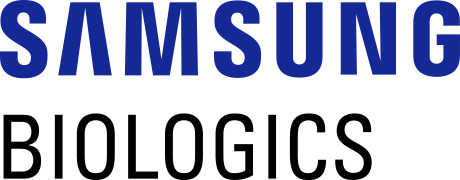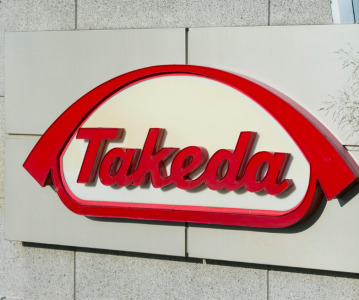COVID-19 has exacerbated contract manufacturing challenges but industry continues to respond well to crisis: experts

Coronavirus pandemic has exacerbated manufacturing capacity constraints, particularly in injectable dose and viral vector production, CPHI audience told
The current coronavirus pandemic has accelerated certain challenges that contract manufacturing and development organisations were already encountering, such as capacity constraints and short supply of single use products, experts at a live CPHI Discover webinar said on Tuesday.
The session, Navigating the CDMO Market: Hurdles, Transformation and Opportunities, sponsored by Samsung Biologics and chaired by Rita Peters, Editorial Director, MJH Life Sciences, explored how COVID-19 affected the contract manufacturing and services space and also provided key learnings on the CDMO market outlook.
When asked what has been the overall impact of the pandemic response on biopharma development and manufacturing and in particular on the CDMO market, Eric Langer, President and Managing Partner, BioPlan Associates said there had been no real significant or dramatic shift: “What we’ve seen instead is an acceleration of what’s been there for literally 30 years.”
He cited one respondent to a BioPlan study who said the industry has been preparing for pandemics throughout its existence “so this is really not unexpected.”
He said the industry is now seeing more facilities, more modular construction, and greater staff shortages, and that the pandemic had exacerbated short supply of single use products and devices, an issue that was predominant before the coronavirus outbreak.
“While continuous bioprocessing and process intensification are longer-term strategies in the contract manufacturing world, we’re definitely going to be seeing more of that over the next five to ten years,” he said. “The pandemic is showing us that we need to focus on the next pandemic and increasingly on our ability to rapidly respond to something that is obviously life threatening,” he said.
However, he said that the industry needs to consider that the pandemic is not the only life-threatening challenge: “All the clinical issues that we saw, whether it be in oncology, products being brought to market or the R&D associated with that, it doesn’t go away. People are literally dying as a result of the shift in focus from what had been before to the pandemic. This is a double hit on an industry that’s truly critical to so many people and the fact that we’re seeing it rise to the occasion is a tribute to the people involved in it.”
Kevin Sharp, Head of Alliance Management, Samsung Biologics said that from the manufacturing perspective, COVID-19 had presented a lot of challenges, particularly with the availability of capacity.
“Within a very short period we saw that capacity dry up; whether it was internal capacity within the pharmaceutical company space or the CDMO industry available capacity and it was really agnostic to scale,” he said.
He added that the pandemic had also posed challenges in terms of meeting timelines: “Capacity availability impacted overall timelines for products in conjunction with various supply chain issues, which impacted production schedules and trying to manage around products and materials that everyone was vying for globally in order to produce very similar products.”
Peter Shapiro, Senior Director of Drugs and Business Fundamentals, PharmSource said looking to the future, he believed there would continue to be capacity problems in injectable dose and viral vector production, crucial to cell and gene therapy and now recombinant vector vaccines which are being used against COVID-19.
“There was already a significant shortage of capacity in this field and this has been exacerbated by AstraZeneca and Johnson & Johnson vaccines as well as those from Russia and China,” he said. “We have a number of drugs in pipeline currently and there’s a very small amount of manufacturing capacity compared to what we would predict the number of approvals would be.”
Pandemic fuels outsourcing rates
Shapiro said CDMOs signed contract manufacturing and services agreements in 2020 at an unprecedented rate due to the pandemic.
“When we look at the rates of outsourcing for the products for COVID-19 given emergency use authorisations, we see 50% of these drugs had an associated contract manufacturing agreement and that includes all of the vaccines that were approved under EUA,” he said, adding that similar outsourcing rates were occurring in 2021 “with a shift to biologics and vaccines in particular.”
In response to the question of whether the pandemic had caused CDMOs to change their business model in any way, Sharp said this was true in terms of executing with speed.
“We’ve all been challenged – both on the client side and the CDMO side – to really go above and beyond the traditional ways of working, and put together operation and capacity plans; there’s definitely been that shift in terms of how we execute and operate,” he said.
He added that streamlining production of APIs and finished products to single facilities was proving to be a value add in the CDMO space, as was expansion into new modalities “to complement the overall service offering.”
One member of the audience asked what key points need to be considered while negotiating commercial proposal with CDMOs.
“Ensuring the long-term availability of required capacity is a key consideration when negotiating a commercial supply agreement,” said Sharp at Samsung Biologics. “Security of supply is a primary factor when evaluating any CDMO. Also, having flexibility from your CDMO to adjust to growing demand can be essential to maintaining commercial volumes. This typically requires close collaboration and communication with your CDMO to ensure alignment of commercial forecasts.”
This webinar will be available on demand from 31 May. In the meantime, for details on how to register for this ongoing virtual event, head to the CPHI Discover website

Related News
-
News mRNA therapy for ovarian cancer and muscle wasting
Researchers demonstrate results of a promising mRNA therapy for ovarian cancer and muscle wasting caused by cachexia, a condition associated with various types of cancers and chronic diseases. -
News Pfizer CentreOne Content Refinement Q3 media buy
For 40 years Pfizer CentreOne has been guiding drug projects to success. Here’s how our services make us an altogether different kind of CDMO: -
News Bora Pharmaceuticals expands development and manufacturing capacity with landmark acquisition
Taiwan-based CDMO Bora Pharmaceuticals have acquired niche generic drugs developer TWi Pharmaceuticals, expanding their outsourced development and manufacturing services with two additional manufacturing facilities. -
News Lonza and Touchlight collaboration to bring expanded end-to-end mRNA offerings
Through a collaboration with biotech company Touchlight, Lonza is set to expand their end-to-end offering for mRNA manufacturing with additional DNA raw material sources, including Touchlight’s doggybone DNA. -
News Oxford University presents promising phase II data for malaria vaccine
The malaria vaccine R21/Matrix-M, developed by researchers at Oxford University, has produced encouraging new data for the global effort against the mosquito-borne disease. -
News NextPharma to acquire Norway manufacturing site from Takeda
Biopharmaceutical company Takeda and CDMO NextPharma have announced an acquisition agreement in which Takeda will divest from their Asker, Norway manufacturing site, set to be acquired by NextPharma. -
News Gut instinct: molecular link between COVID-19 and serotonin cells in the gut
New research may provide further evidence of the gut’s role in SARS-CoV-2 infection and disease severity with a molecular link between serotonin-producing cells in the gut and COVID-19 disease severity. -
News Novavax COVID-19 vaccine receives backing from European Medicines Agency
The European Medicines Agency has backed the Nuvaxovid COVID-19 vaccine for adults as a booster shot to other COVID-19 vaccines.
Position your company at the heart of the global Pharma industry with a CPHI Online membership
-
Your products and solutions visible to thousands of visitors within the largest Pharma marketplace
-
Generate high-quality, engaged leads for your business, all year round
-
Promote your business as the industry’s thought-leader by hosting your reports, brochures and videos within your profile
-
Your company’s profile boosted at all participating CPHI events
-
An easy-to-use platform with a detailed dashboard showing your leads and performance


.png)
.png)
.png)

.png)
.png)